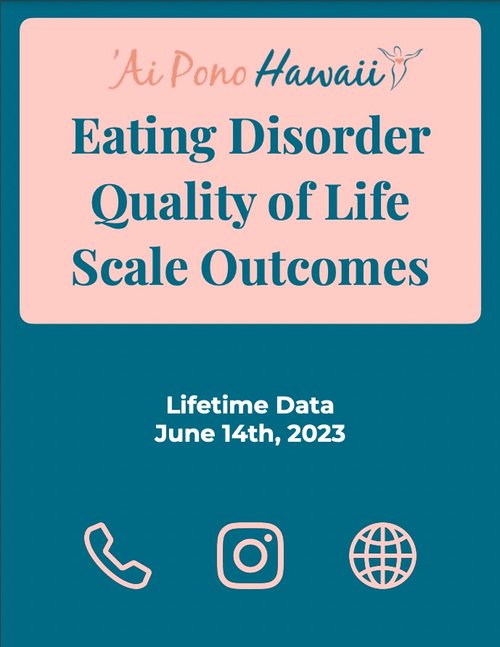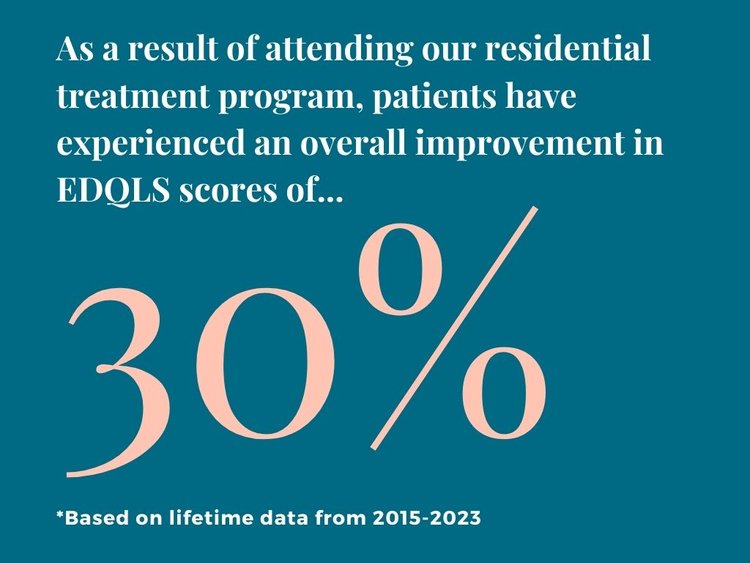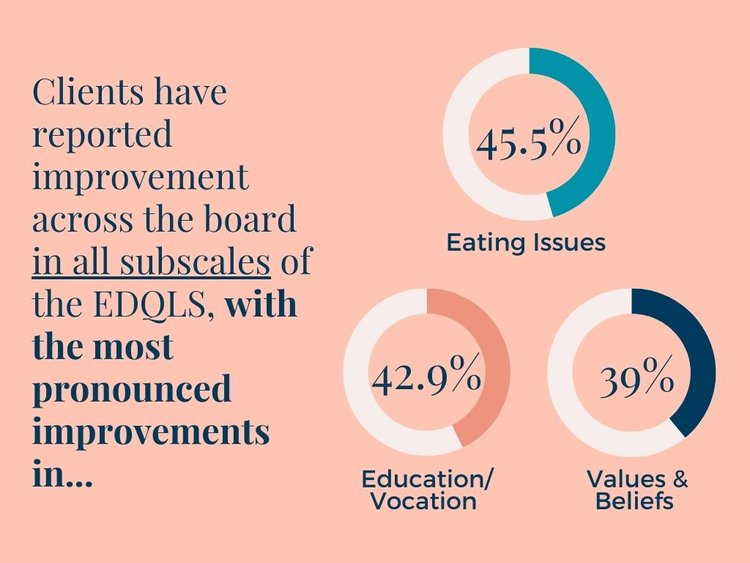Our Responsibility as a Care Provider
At ‘Ai Pono Hawaii, we feel it is our responsibility as a JCAHO accredited facility and an active member of the REDC Consortium to do all we can to ensure that the care we are providing is effective and evidence-based.
Tools and reports such as the Eating Disorder Quality of Life Scale (EDQLS) and our recently published Lifetime Data Report provide statistical validation of the impacts that we as treatment providers get to feel, see, and hear about on a daily basis from our patients, as well as their family members and loved ones.
Download ‘Ai Pono Hawaii’s
Eating Disorder Quality of Life Scale Outcomes
(November 2015 - June 2023)



Measuring Clinical Effectiveness
There are many factors that contribute to an individual’s “success” in regards to sustained eating disorder recovery, as well as many definitions of what success truly is. For these reasons, it can be challenging to provide statistically accurate data measuring overall “success rates.”
What we can measure – with intention, effort, and accuracy – is the effectiveness of our clinical program in regards to its ability to support an individual in reducing their eating disorder symptoms and improving their overall quality of life from the time they enter our treatment program to time of their discharge from the program. We are also actively working to collect longitudinal data on the lasting impacts of our program on the individuals who attend following their discharge.
The Eating Disorder Quality of Life Scale (EDQLS)
‘Ai Pono Hawaii uses the EDQLS as a measure of patient progress throughout time in treatment in both our residential and virtual intensive outpatient programs.
The EDQLS is a validated quantitative metric for measuring quality of life as it relates to eating disorders in those who are struggling with eating disorders. It was originally developed in 2004-2005 and finalized and copyrighted in 2007 by Dr. Carol Adair and colleagues. It went through significant testing and included input from individuals in nursing, dietetics, pediatrics, psychology, psychiatry, social work, and family medicine (all with eating disorder experience).
In addition to the overall score of the EDQLS, it has twelve subscales that encompass various aspects of quality of life as it relates to eating disorders. The subscales are cognitive functioning, education/vocation, family & close relationships, relationships with others, future/outlook, appearance, leisure, psychological health, emotional health, values and beliefs, physical health, and eating issues.
If you have any questions regarding our program, clinical modalities, or treatment outcomes, please reach out to us directly and a team member will be happy to provide you with the information you need to feel safe and comfortable in determining the next steps in your recovery journey.
